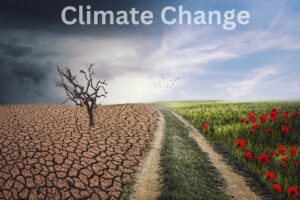Indigenous people who protect 80% of the world’s remaining biodiversity are being pushed to the margins of global climate efforts according to a new UN report. Despite their crucial role in safeguarding ecosystems they receive less than 1% of climate funding and are often excluded from decision-making. The report warns that without Indigenous leadership the world’s climate goals will remain out of reach and current “green” solutions could end up repeating the injustices of the past.

Indigenous Peoples Left Out Despite Vital Role
The United Nations launched The State of the World’s Indigenous Peoples this week, highlighting a troubling imbalance. Indigenous communities make up just 6% of the global population but are responsible for protecting most of the Earth’s remaining biodiversity. Yet, when it comes to global climate finance, they see only scraps less than 1%.
Hindou Oumarou Ibrahim Chair of the UN Permanent Forum on Indigenous Issues, stresses in the foreword: “Although we are disproportionately affected by the climate crisis, Indigenous Peoples are not victims. We are custodians of the natural world.”
Drawing from lived experiences case studies, and research from across seven world regions, the report uncovers how Indigenous voices are often absent from critical climate discussions, and how so-called climate solutions are harming the very communities best equipped to protect nature.
 Traditional Wisdom, Modern Solutions
Traditional Wisdom, Modern Solutions
The report urges the world to rethink its attitude toward Indigenous knowledge not as ancient myths, but as proven, scientific systems refined over millennia.
Examples are inspiring. In Peru, Quechua communities have revived ancestral water management practices to survive shrinking glaciers and worsening droughts, even inspiring farmers beyond their borders. In Somalia, oral traditions have acted as environmental laws, protecting forests through cultural norms. In Mexico, the Comcaac people’s place names hold critical ecological knowledge, helping preserve marine life.
These are not just traditions they are real, tested solutions for today’s climate challenges.
Green Projects, Old Injustices
While the world rushes toward renewable energy, many Indigenous communities are suffering. The report shows that “green solutions” such as biofuel farms, carbon offsets, and mining for clean energy minerals are often launched without the free, prior, and informed consent of Indigenous Peoples.
In Africa, extraction of minerals like lithium and cobalt has damaged ecosystems and displaced communities. In the Americas, carbon offset schemes set up in Indigenous forests have excluded locals from both decision-making and financial benefits.
The UN warns that without Indigenous Peoples at the heart of climate solutions, the same colonial patterns of exploitation will continue, just under a new “green” label.
 Climate Change Hits Indigenous Health Hard
Climate Change Hits Indigenous Health Hard
The report also reveals how climate change is endangering Indigenous health systems. In the Arctic, disrupted animal migrations and rising temperatures threaten food security. In East Africa, Indigenous women face greater risks from diseases worsened by warming temperatures. In the Amazon, loss of biodiversity cuts off access to traditional foods and medicines, leading to growing malnutrition.
Still Indigenous communities are fighting back. Women and elders are leading local efforts to revive traditional diets adapt farming calendars, and share survival knowledge with younger generations.
Shut Out from Funding and Power
Despite frequent mentions in climate talks, Indigenous Peoples remain locked out of real power and funding. Less than 1% of climate finance reaches them directly. The UN report stresses that without changing who controls the funds and decisions, the world risks repeating its greatest environmental mistakes.
Solutions: A Roadmap for Real Change to avoid sidelining Indigenous Peoples any further:
- Create Indigenous-led financial mechanisms: Funds should be managed by Indigenous communities themselves, not by distant institutions.
- Recognize Indigenous governance systems: Indigenous ways of managing land, water, and resources must be officially respected and supported.
- Protect Indigenous data sovereignty: Communities must control how their knowledge about land, health, and environment is collected and shared.
- Ensure free, prior and informed consent: No green project should move forward without genuine consultation and agreement from Indigenous Peoples.
Without these critical changes climate action risks deepening the very injustices it seeks to heal. To truly save the planet, the world must put Indigenous leadership at the center not at the margins.
Written by Vaishali Verma
Sub-editor, DisastersNews
